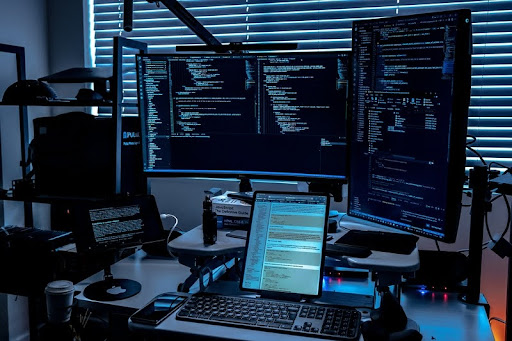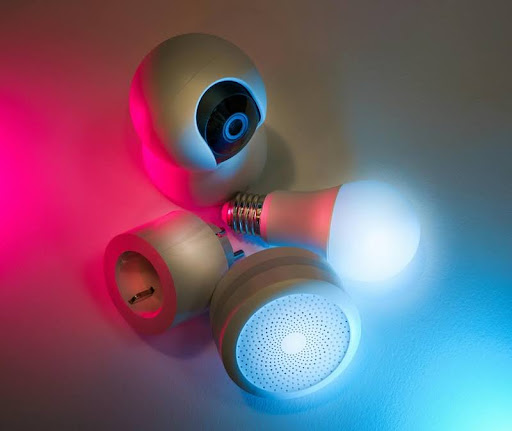
Let’s be honest, when you hear the words “artificial intelligence,” your mind probably jumps to robots, high-tech companies, or maybe even job loss. You’re not alone. For a lot of people, AI feels like this big, mysterious force that’s slowly creeping into every corner of life. It’s exciting… and a little unsettling.
If you’ve ever wondered, “Is a robot coming for my job?” or “Will there be anything left for humans to do?”, you’re asking the right questions. But the answers aren’t all doom and gloom. The picture is way more balanced than it seems.
So, let’s break it down together, what AI is really about, what’s at risk, what’s not, and how you can prepare for the future of work without needing a PhD in tech.
So, What Is AI?
Before we go any further, let’s keep things simple. AI, or artificial intelligence, just means machines that can do tasks that usually require human brainpower. Think of things like recognizing speech, making decisions, learning from data, or even chatting with you online.
There’s also something called machine learning, which is basically a way for AI to teach itself things over time, based on patterns. And then there’s automation, which usually means using machines to handle repetitive tasks without much thinking involved.
Now, don’t worry about the techy stuff too much. What matters here is this: AI isn’t some far-off future concept. It’s already showing up in everyday places, like the spam filter in your email, voice assistants like Siri or Alexa, and those eerily accurate movie recommendations on your favorite streaming app.
And as AI gets smarter, it’s starting to shake up the job world in a big way.
Why the Fear? Let’s Talk About Job Loss
You’ve probably heard headlines like “AI to replace millions of jobs” or “Automation threatens the future of work.” Those stories can sound scary, and they’ve got some people understandably nervous.
At the core of this worry is one big question: If machines can do the same work faster and cheaper, what happens to the people who used to do it?
The truth? Some jobs will change, and yes, some may disappear altogether, especially ones that involve a lot of routine, repetitive work. That’s been true with every major tech shift in history, from the Industrial Revolution to the Internet age.
But there’s a twist. While AI might take over some jobs, it also has the power to create entirely new ones, ones that didn’t even exist a few years ago.
The Flip Side: AI Isn’t Just Taking Jobs, It’s Making Them
Here’s where things get interesting. As AI spreads into more industries, it’s also opening up brand-new roles. Roles that require people to manage, build, monitor, and improve AI systems.
Think about it like this: when cars replaced horses, yes, some jobs disappeared. But we also got mechanics, gas station workers, driving instructors, and more. That same kind of shift is happening now, just in a digital way.
Jobs are popping up that combine tech skills with human judgment. And while not everyone needs to become a coder or an AI engineer, there’s growing demand for people who can work with AI, not compete against it.
In other words, it’s not just about robots replacing people, it’s about people working alongside smart tools to get more done.
Which Jobs Are Most Likely to Change?
Let’s be real. Not all jobs are equally at risk. If your job involves doing the same task over and over again, it’s more likely to get automated.
We’re talking about things like data entry, basic customer service, or assembly-line work. These are the roles AI can handle with speed and accuracy, especially when there’s not much decision-making involved.
But that doesn’t mean those jobs just vanish overnight. Often, they evolve. A data entry clerk might shift into a role that focuses on checking AI’s work for accuracy. A customer service rep might become someone who handles more complex issues while the chatbot deals with the basics.
So instead of thinking “AI is replacing jobs,” try thinking “AI is changing how jobs look.” Because that’s usually what happens.
Here’s What AI Can’t Do (At Least Not Well)
Even with all its power, AI still has limits, and that’s where humans shine.
AI struggles with things that require emotional nuance, creativity, or deep human connection. It can’t comfort a nervous patient, dream up a unique marketing campaign, or mediate a tense conversation between coworkers. These are things that require empathy, understanding, and judgment. And that’s not something you can program easily.
Here are a few human skills that still matter (a lot):
- Critical thinking: AI can process data, but it doesn’t always understand context.
- Emotional intelligence: People trust people, not machines.
- Creativity: New ideas and fresh thinking still come from human brains.
- Leadership and collaboration: Managing people, resolving conflict, and inspiring a team, that’s a human job.
So, if you’re good at any of those, that’s great news. You’re already bringing something to the table that machines can’t.
What Can You Do to Stay Ahead?
Now that you’ve got a better sense of what’s happening, the next question is, what should you do about it?
The short answer: stay curious, stay flexible, and keep learning.
You don’t need to become a tech expert overnight, but understanding how AI is showing up in your industry can give you a major edge. That could mean taking an online course, attending a workshop, or just reading up on trends now and then.
Also, think about ways you can combine your existing skills with technology. Maybe you’re a great writer, could you learn how to use AI tools to brainstorm ideas faster? Or if you’re in customer service, could you explore tools that help analyze customer feedback more efficiently?
Upskilling isn’t about becoming someone else. It’s about adding new tools to your toolkit so you can stay valuable and adaptable.
And let’s be real, most of us switch jobs or even careers multiple times in life anyway. Getting comfortable with learning and pivoting is just smart, AI or not.
AI’s Impact: Not All Bad, Not All Good
It’s tempting to think of AI in extremes. Either it’s a job-stealing monster, or it’s a magical solution to everything. The truth, as usual, is somewhere in the middle.
AI will change the way we work. But it’s not about total replacement, it’s about transformation.
Some roles will shrink. Others will grow. And a lot of jobs will shift into something new entirely. If we focus too much on the fear, we miss the chance to prepare and even shape what’s coming next.
That’s why mindset matters. The more you see AI as a tool instead of a threat, the more likely you are to adapt well.
And honestly? That mindset shift is probably the most important career move you can make right now.
Wrapping It All Up
Let’s bring it home.
Will AI take your job? Maybe part of it.
Will it create new ones? Definitely.
Is the future of work completely out of your hands? Not at all.
AI is already here, and it’s changing the game in big ways. But that doesn’t mean humans are out of the picture. If anything, it means we’re going to need people who are more flexible, more creative, and more connected than ever.
So instead of panicking, start preparing.
Think about what you’re good at, stay open to learning new things, and pay attention to how your field is evolving. You don’t have to know everything. You just need to keep moving forward.
The future of work isn’t written in code.



